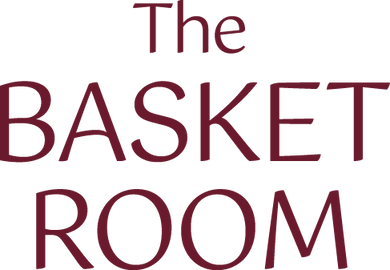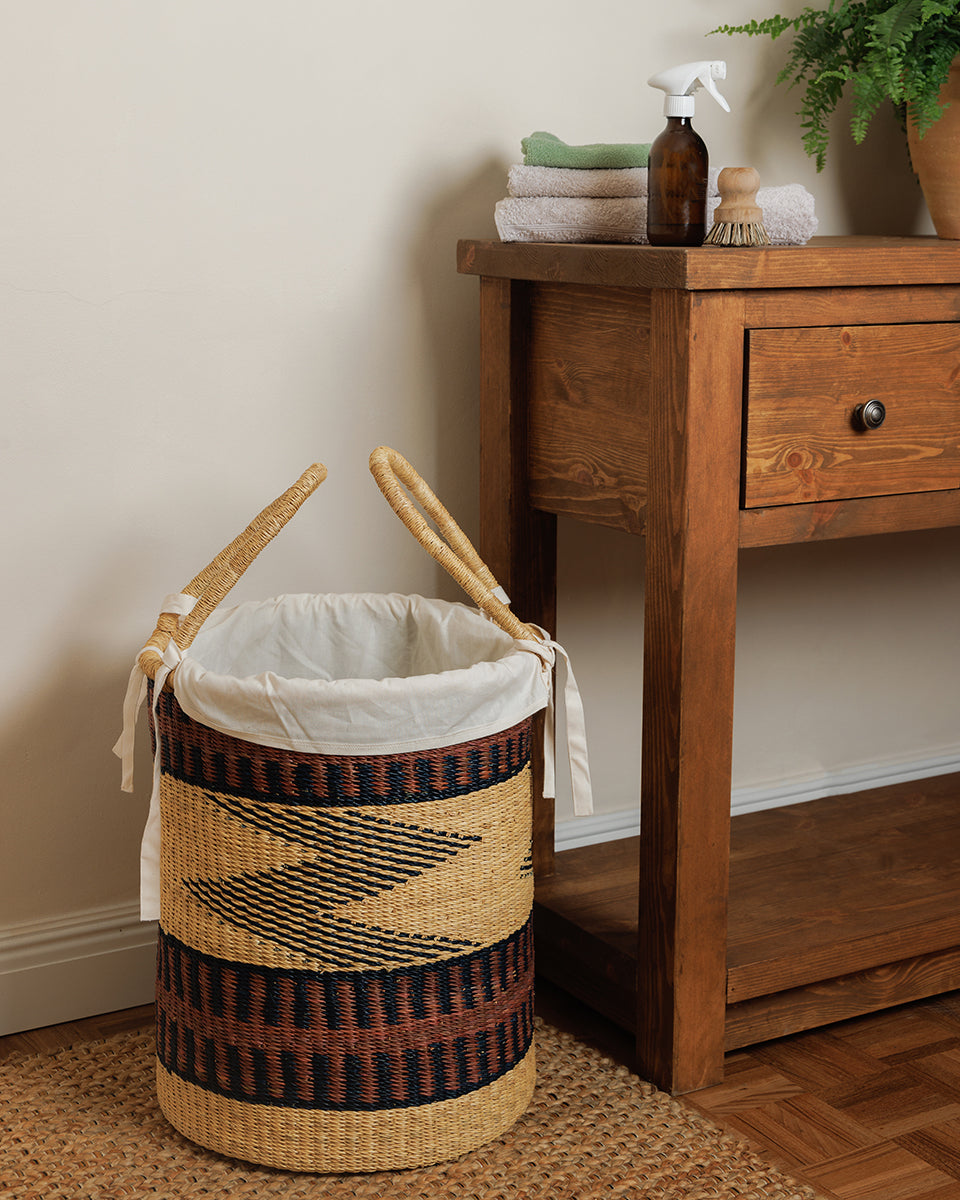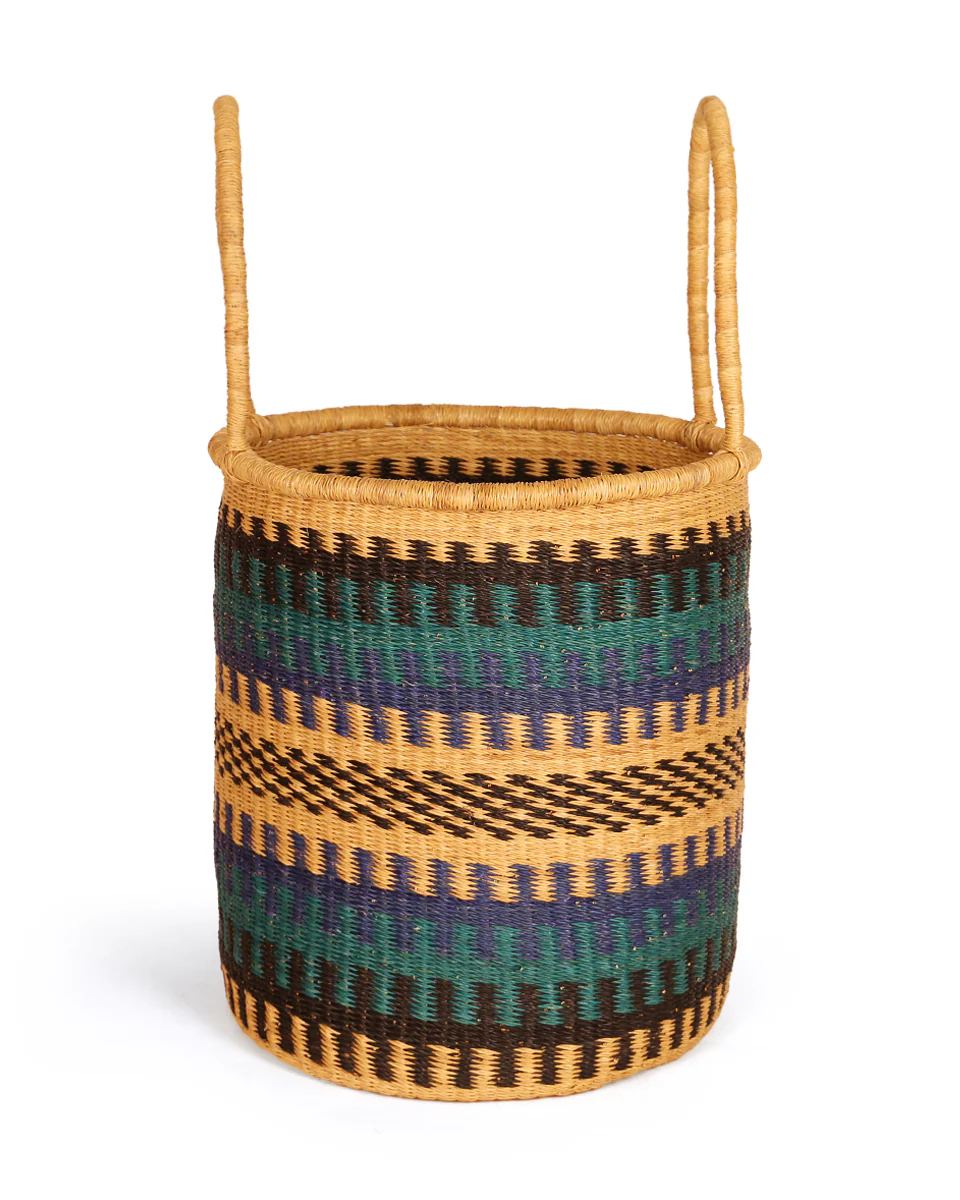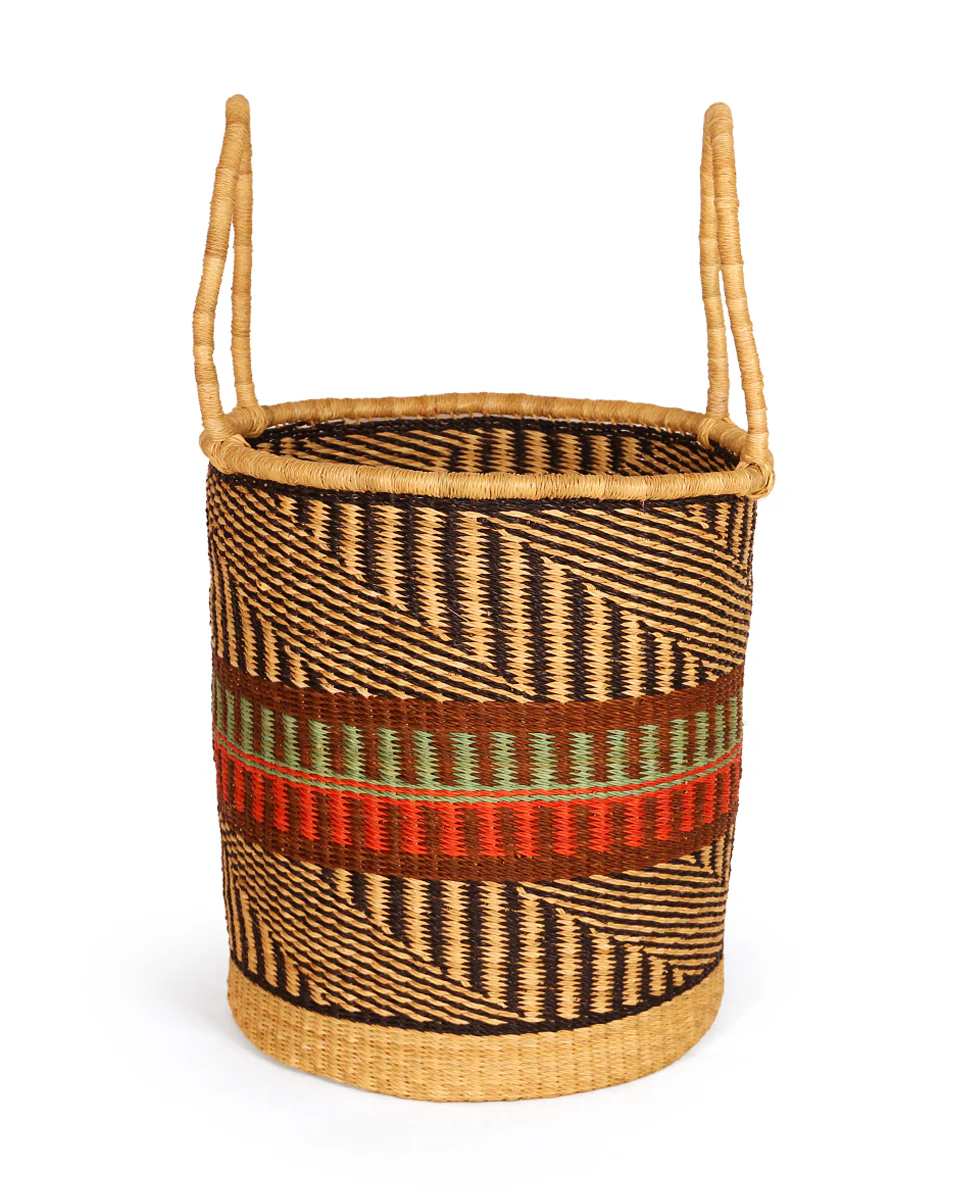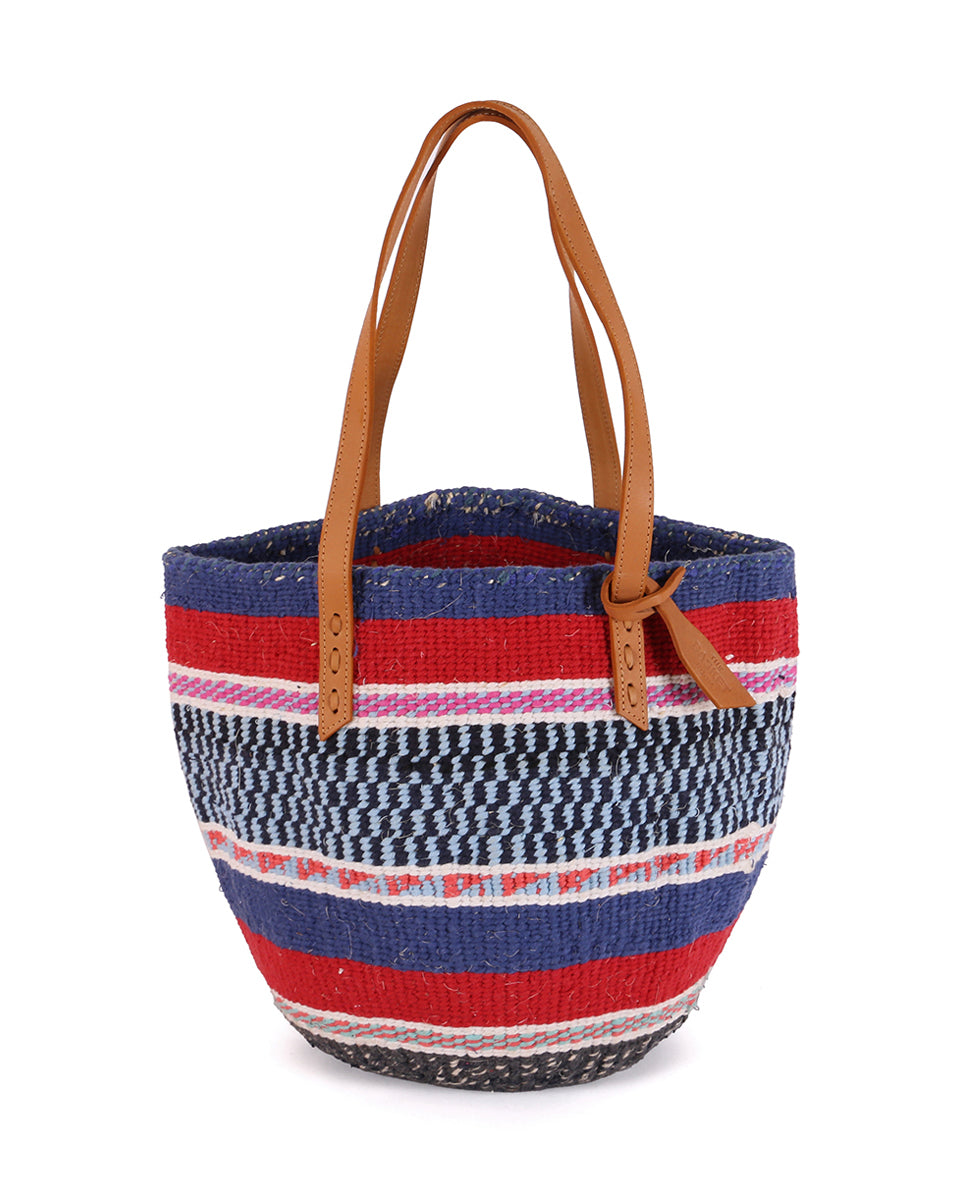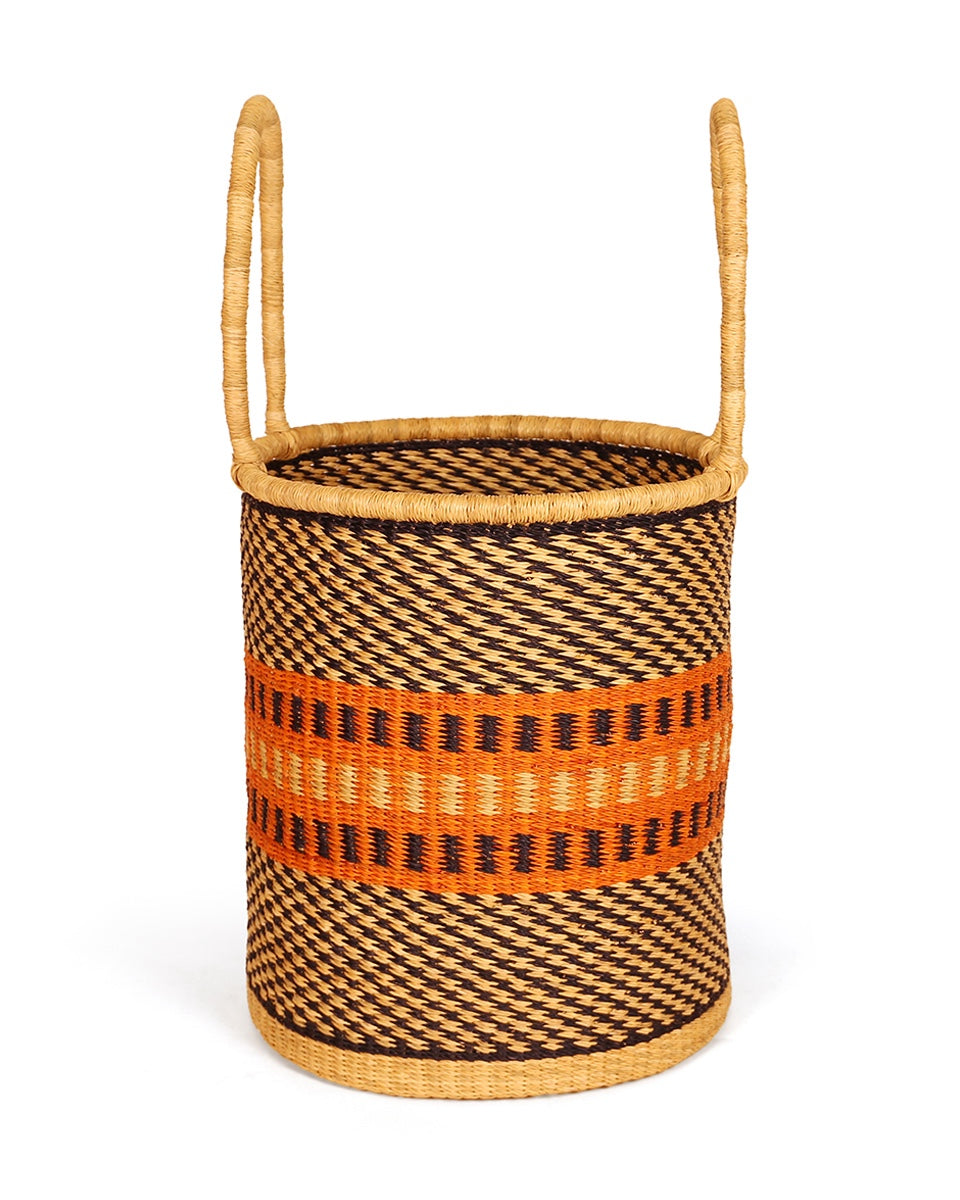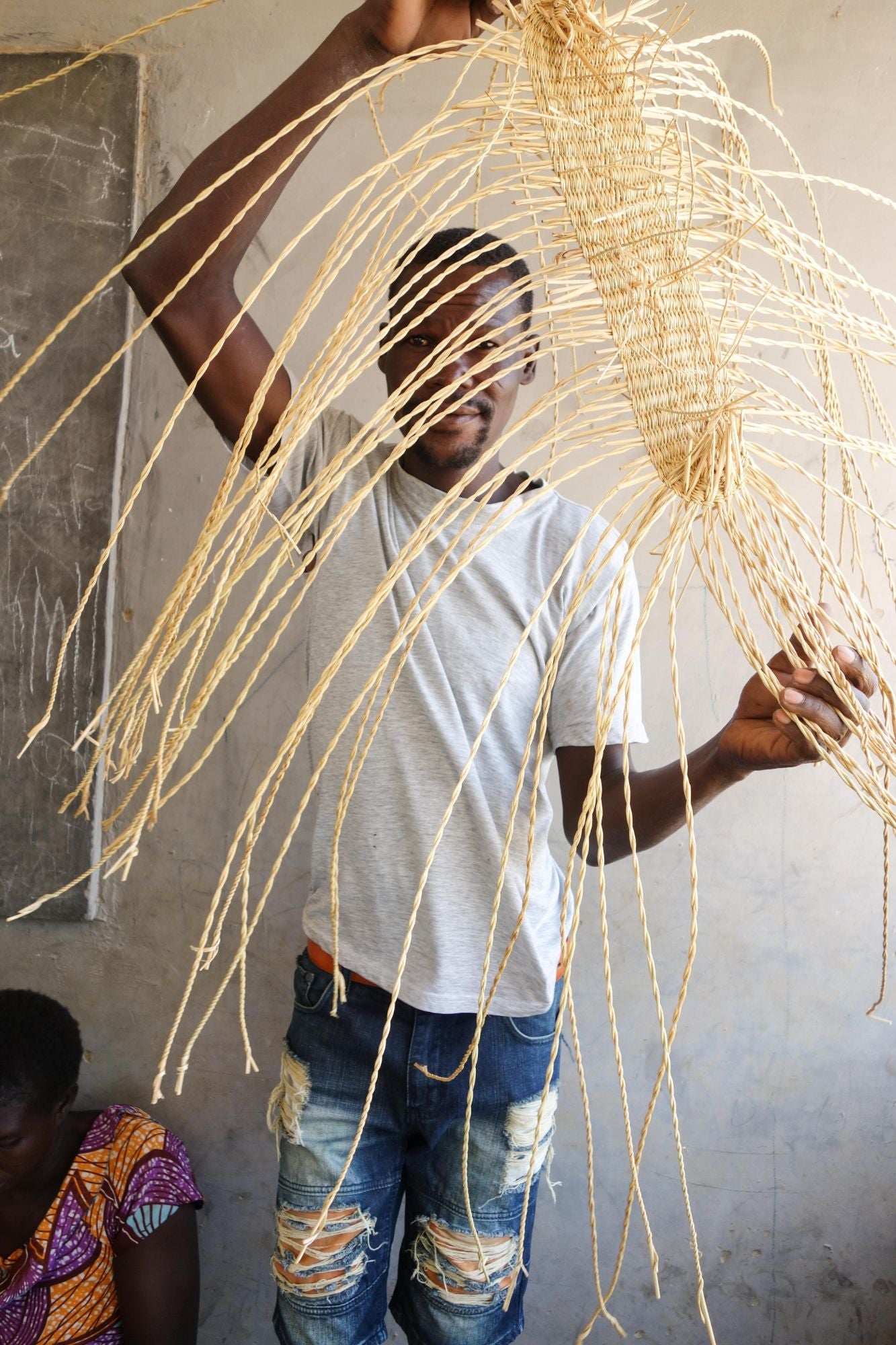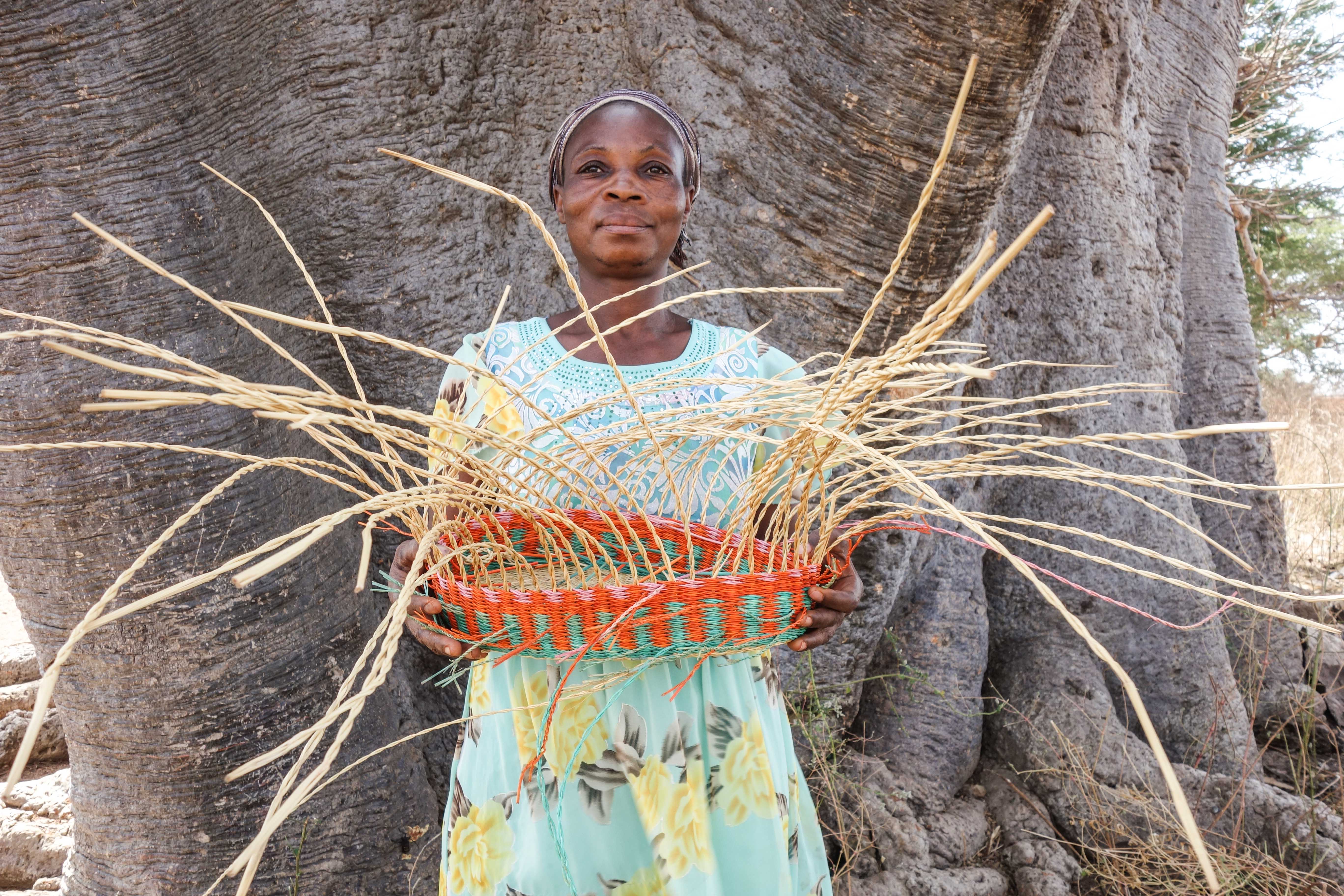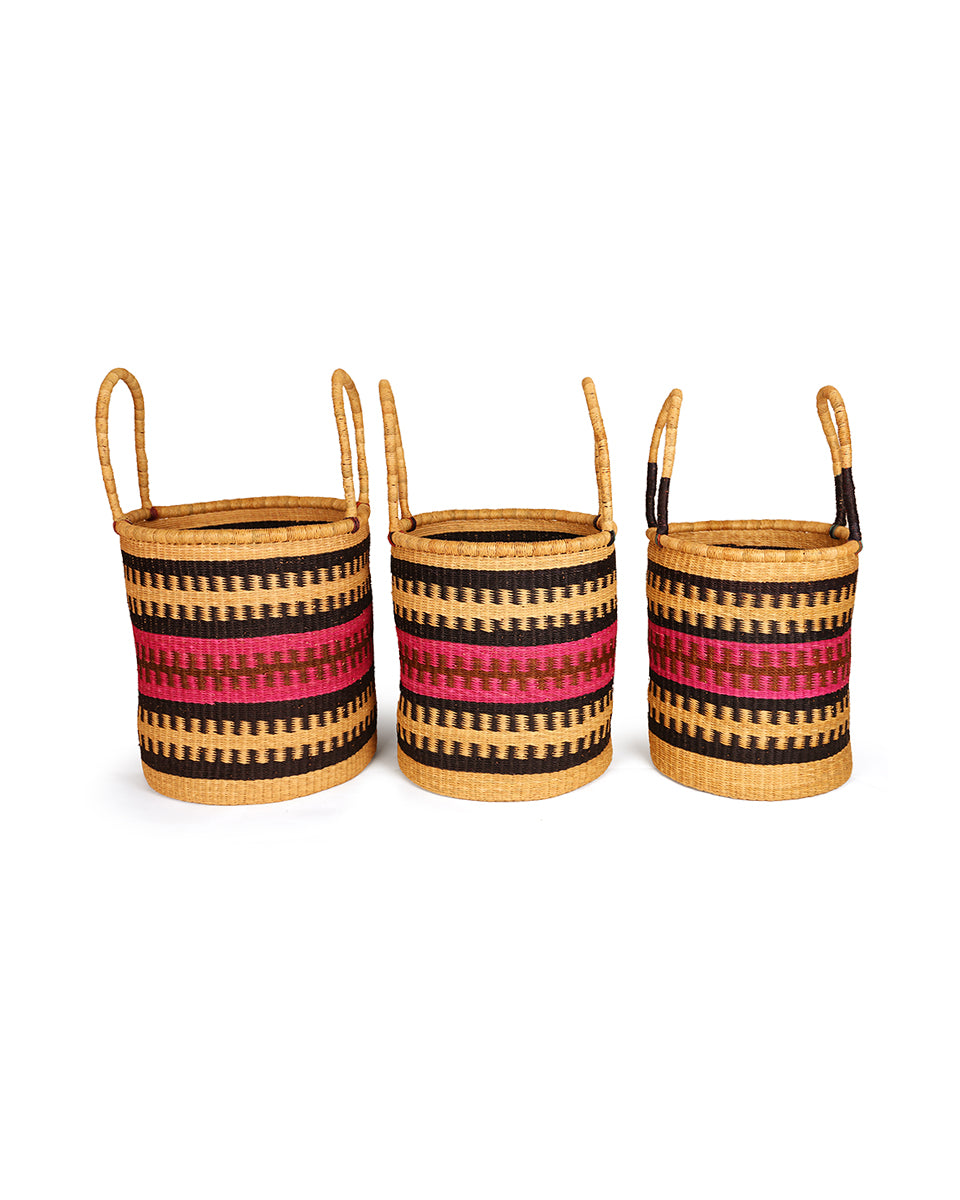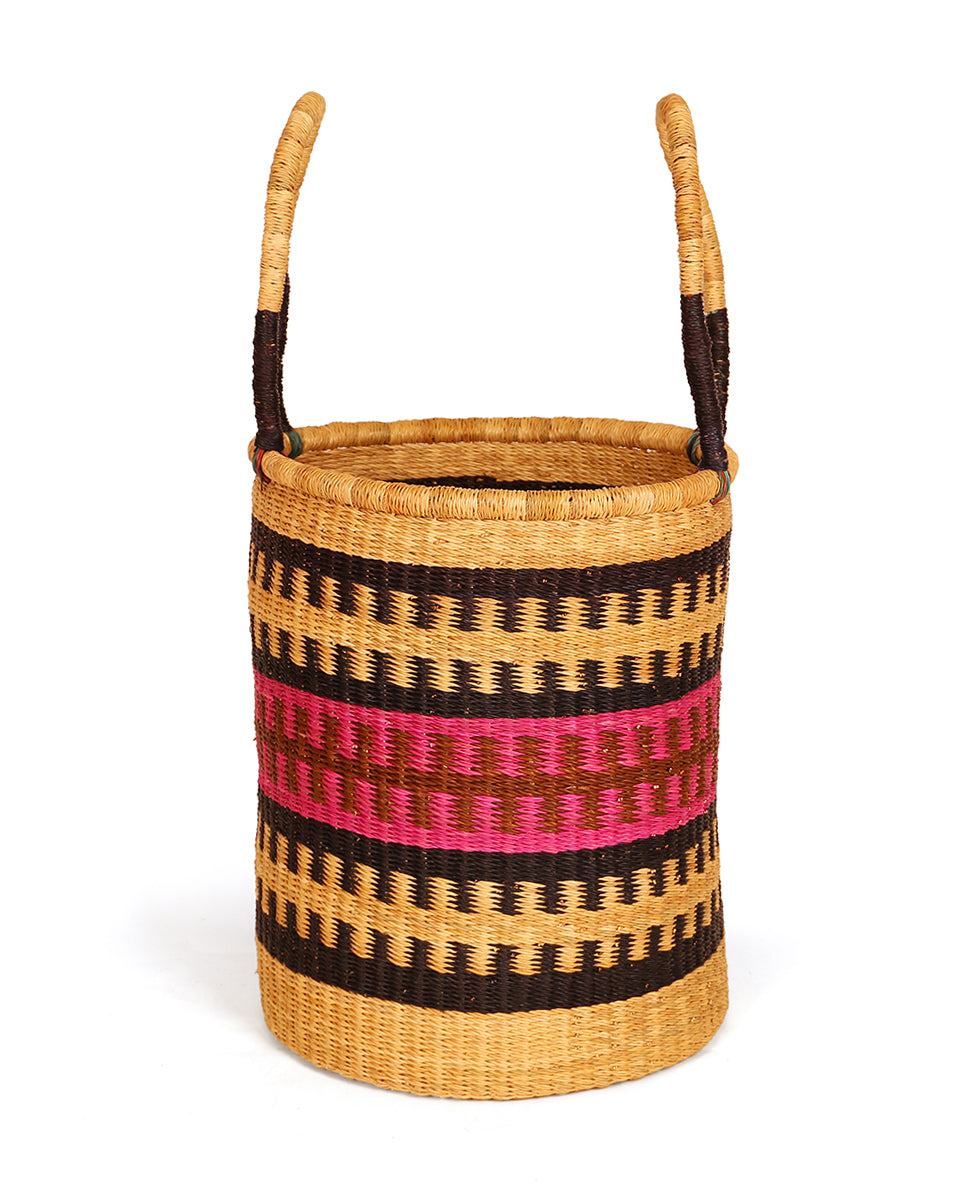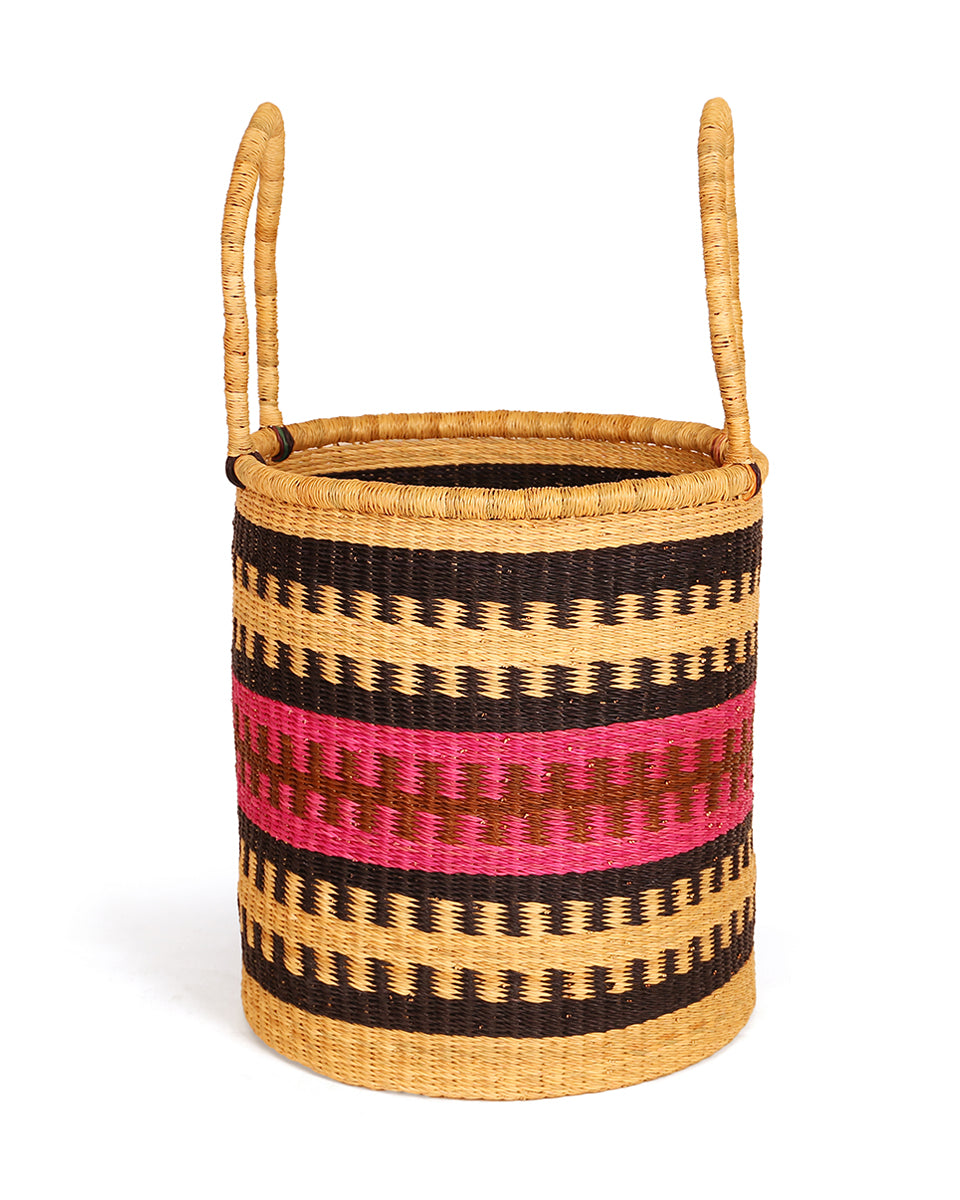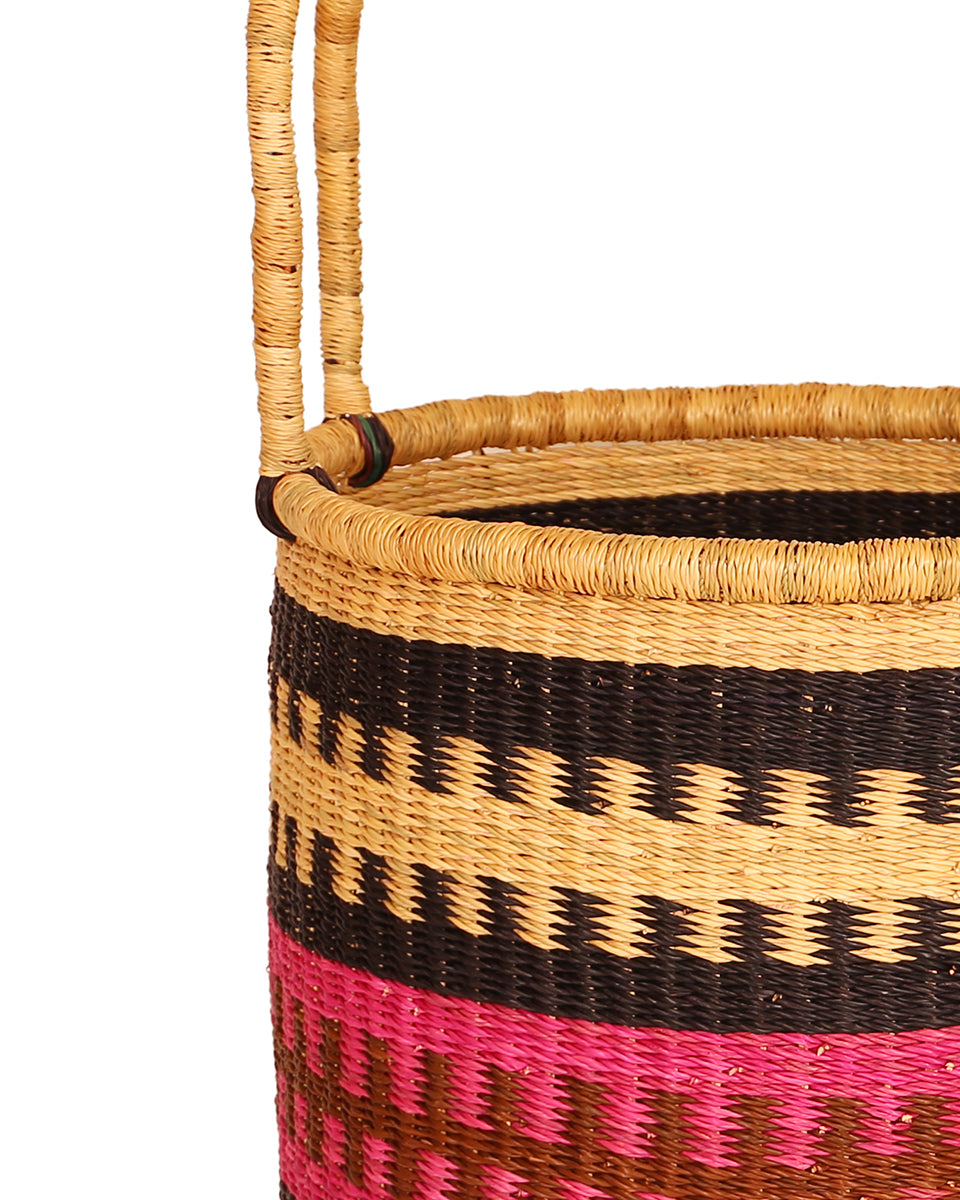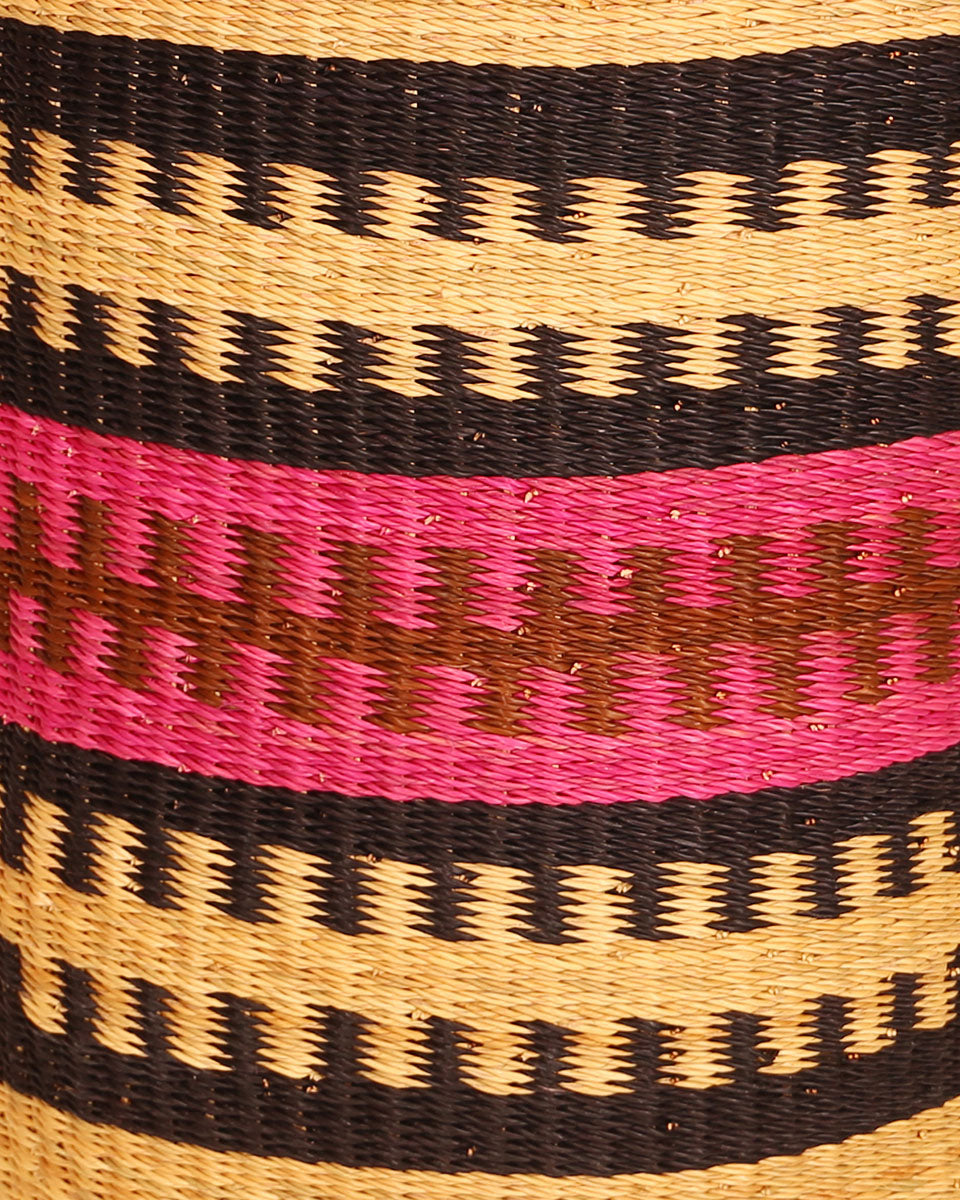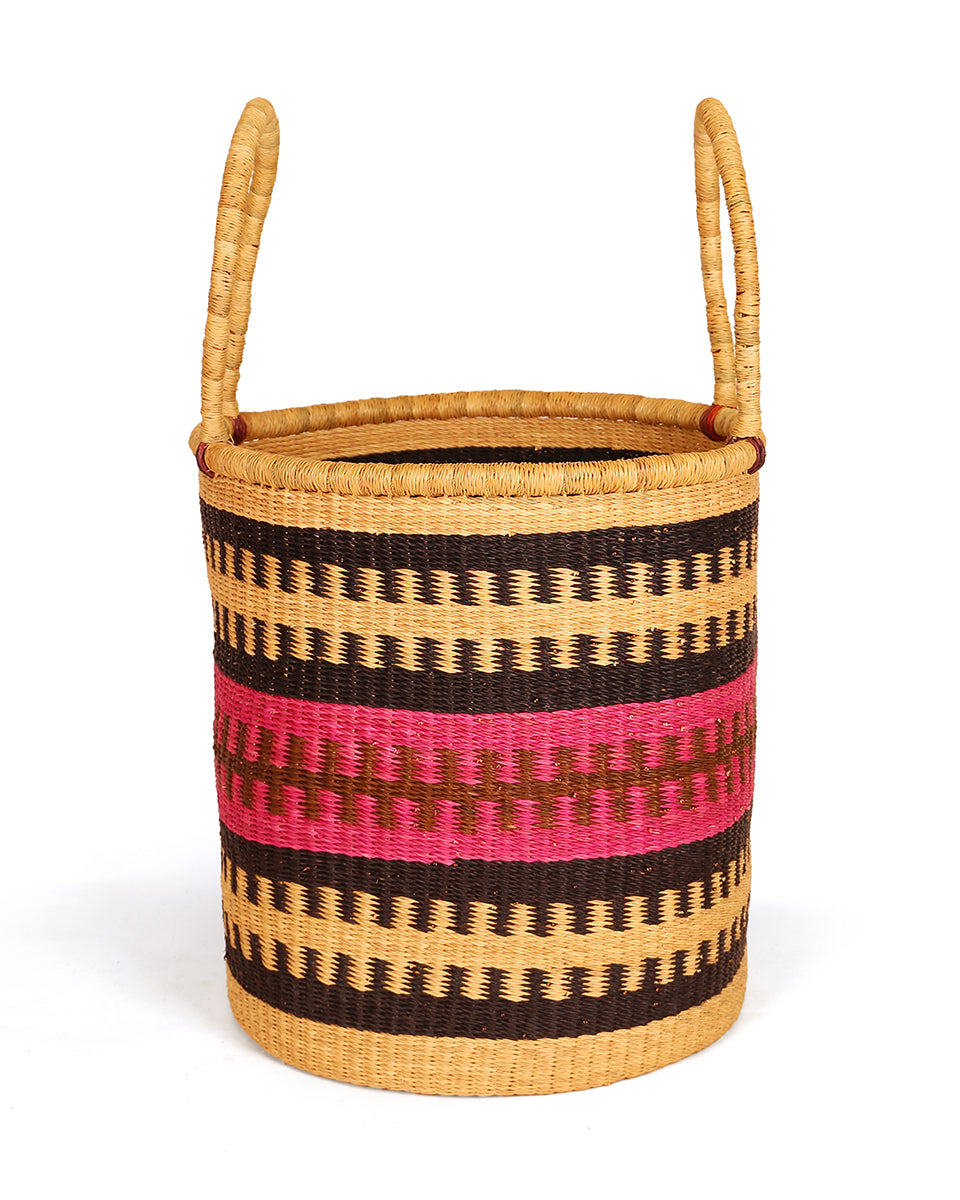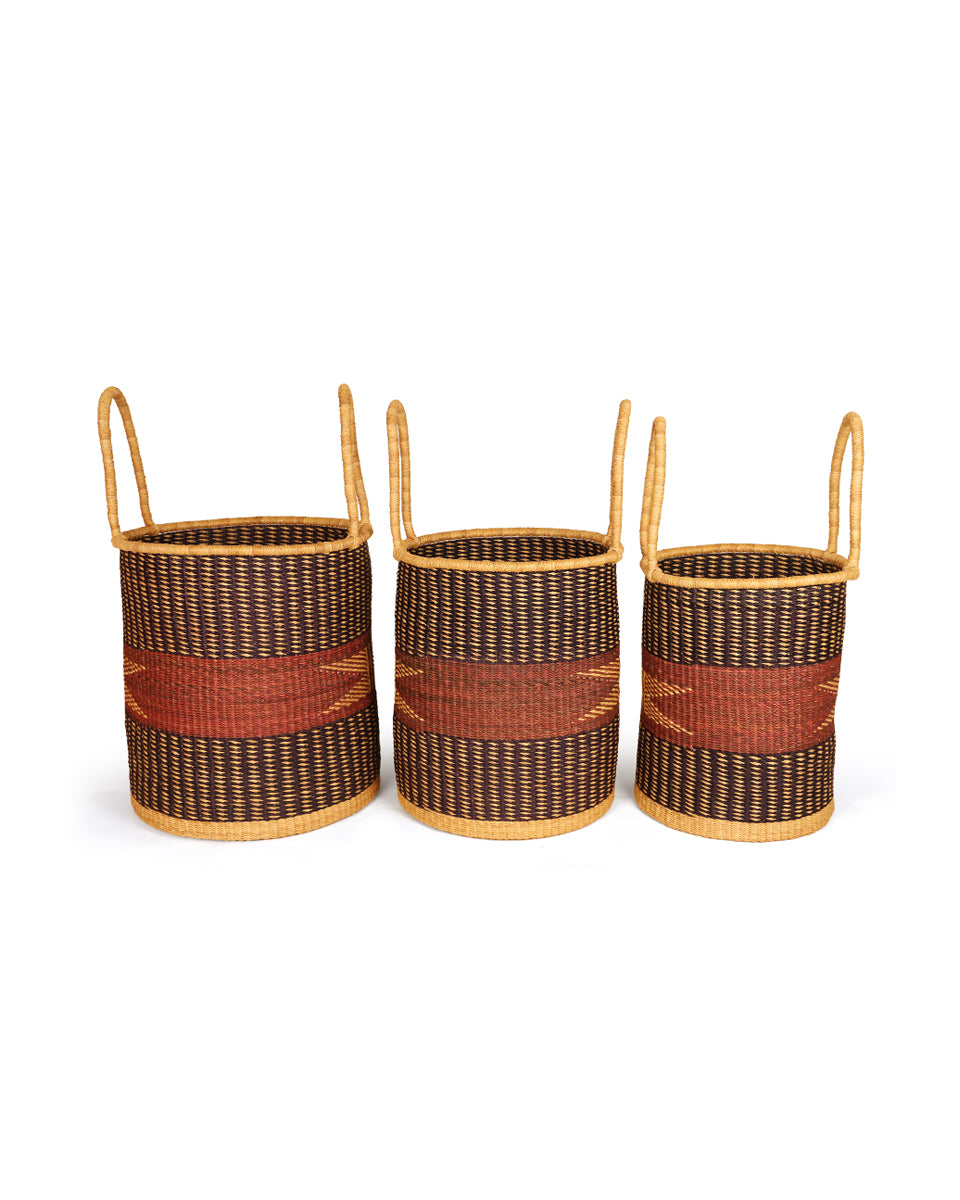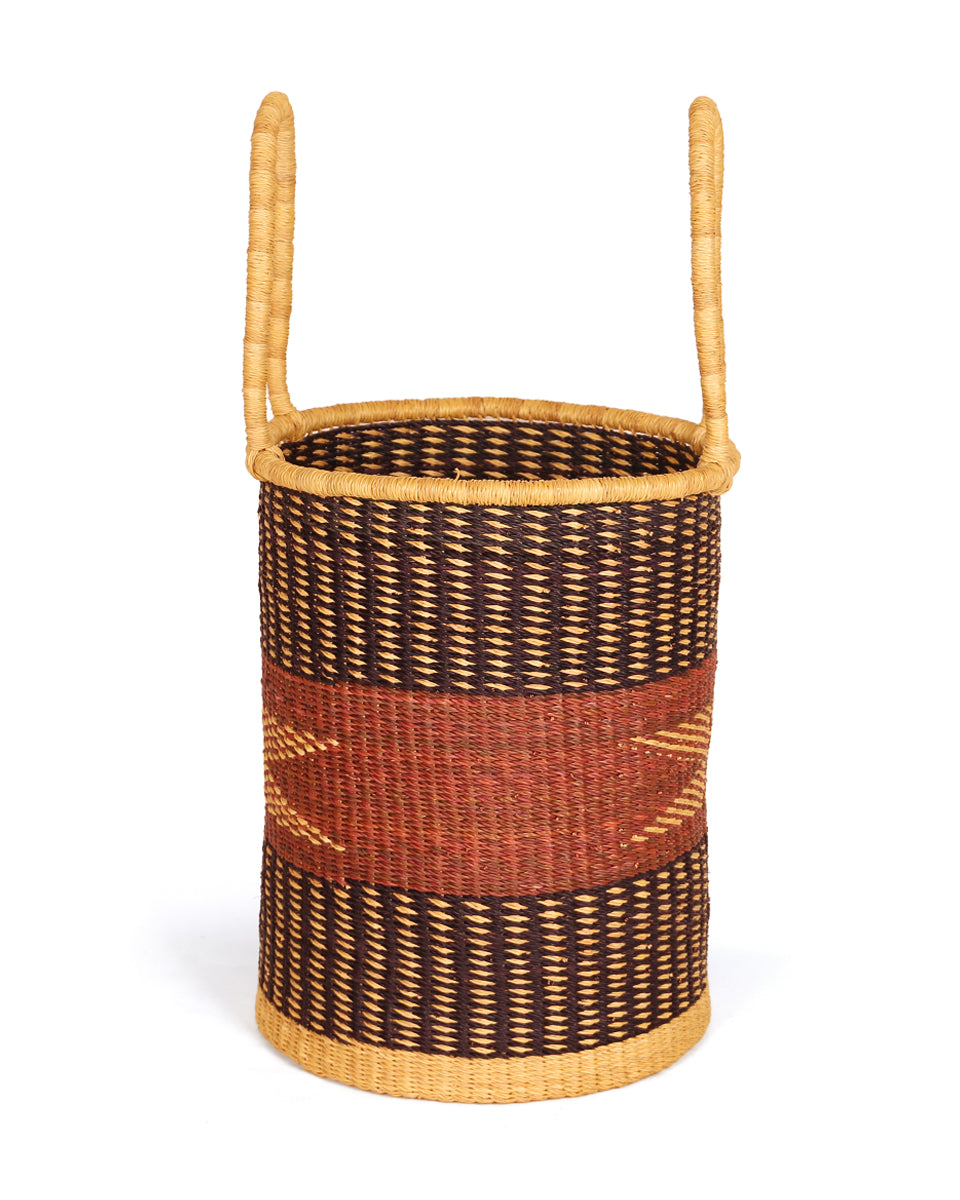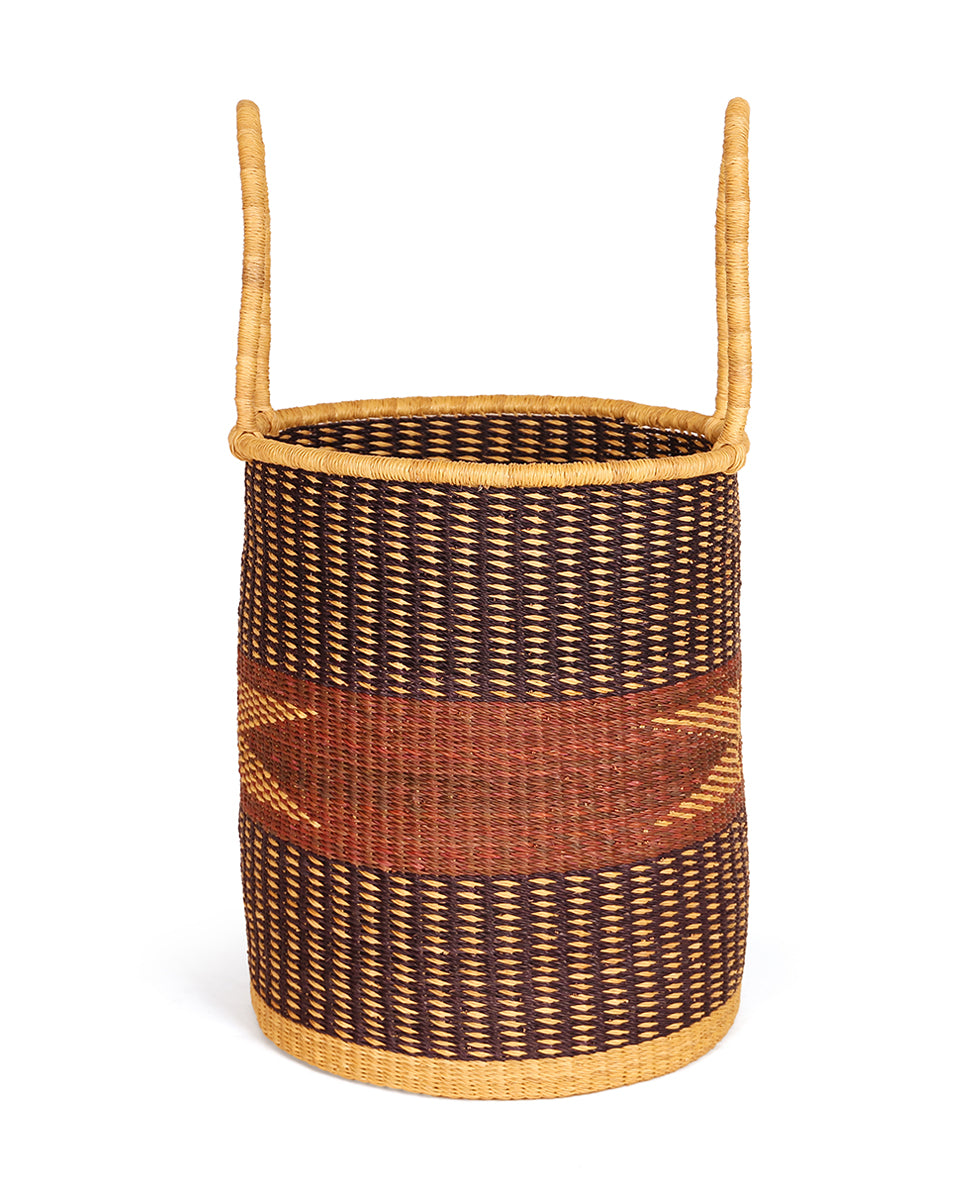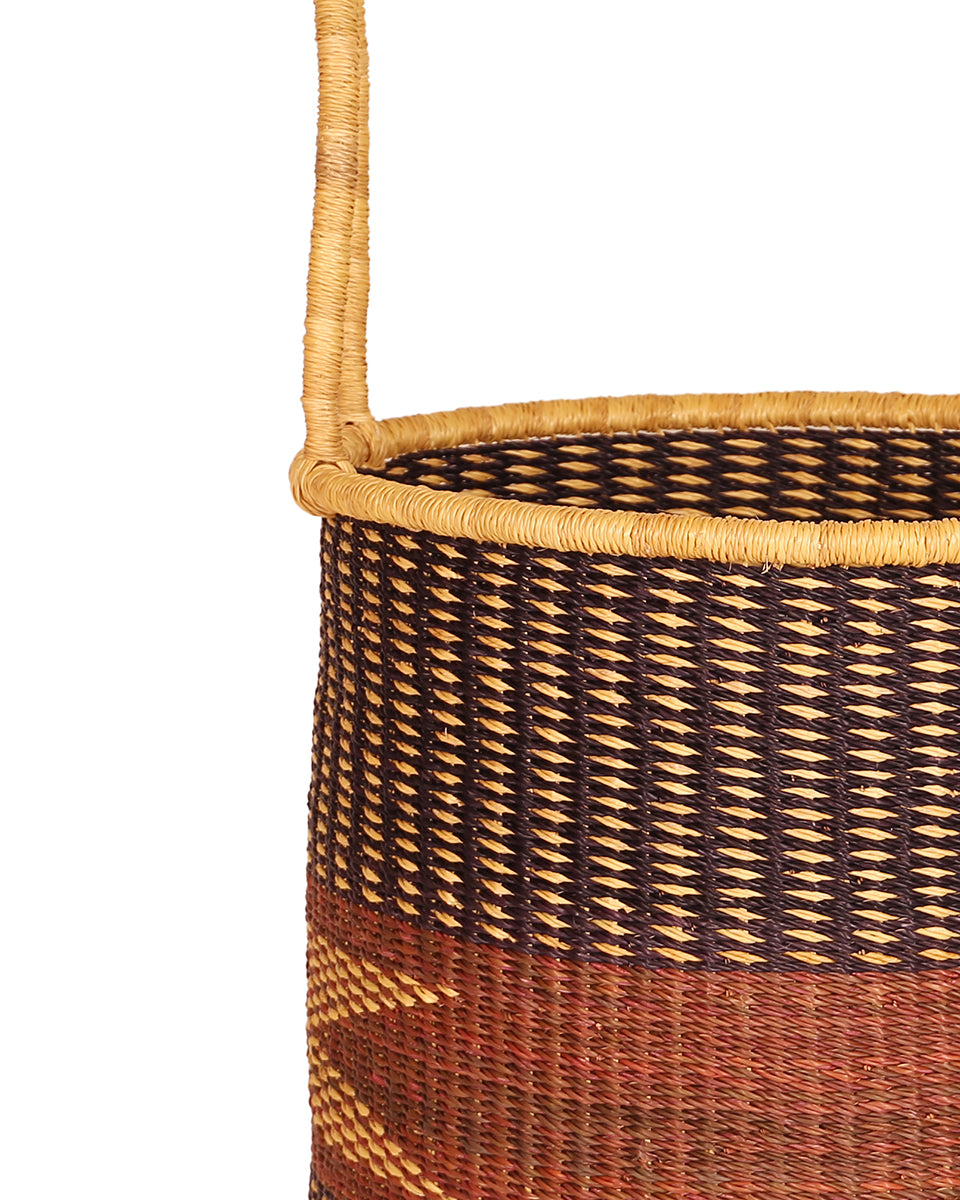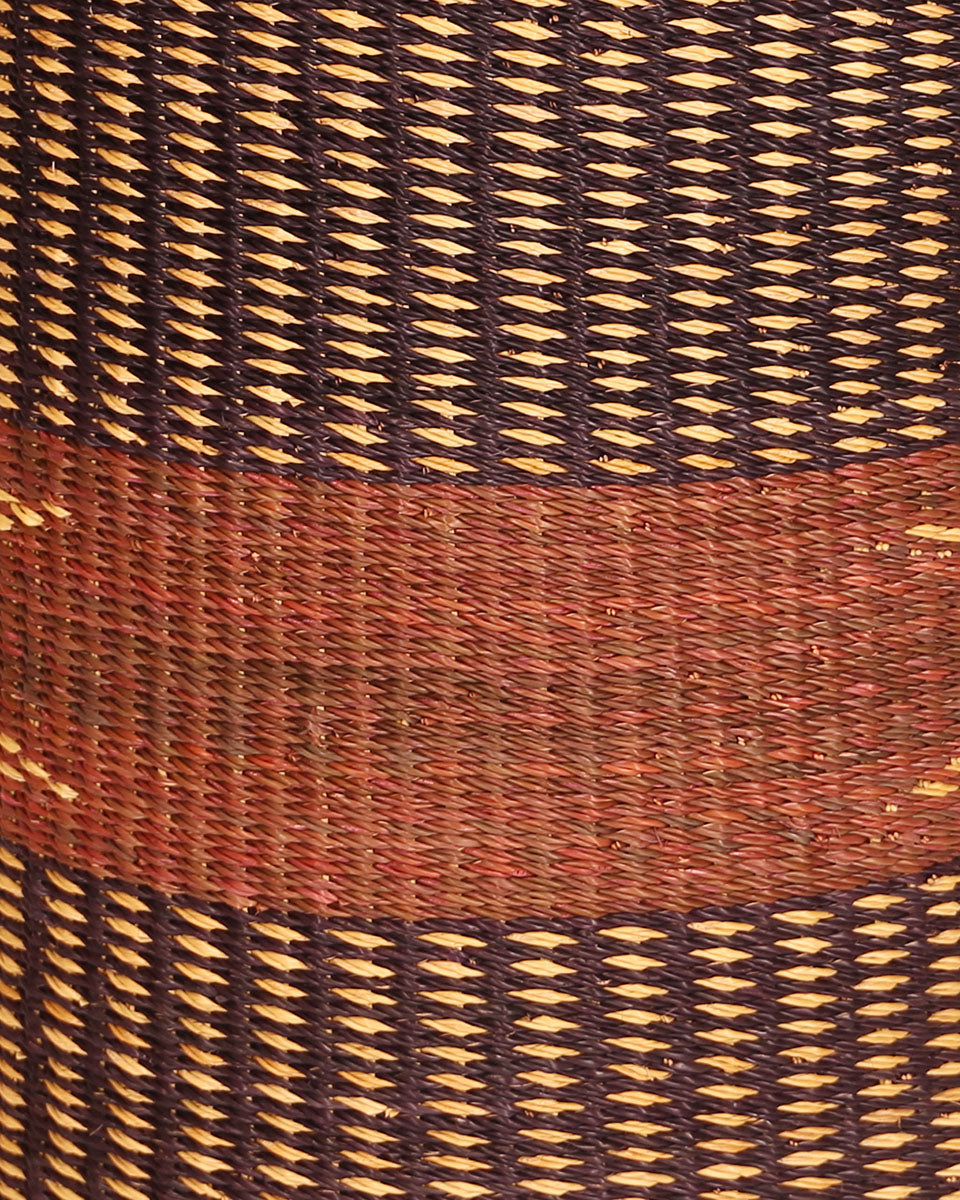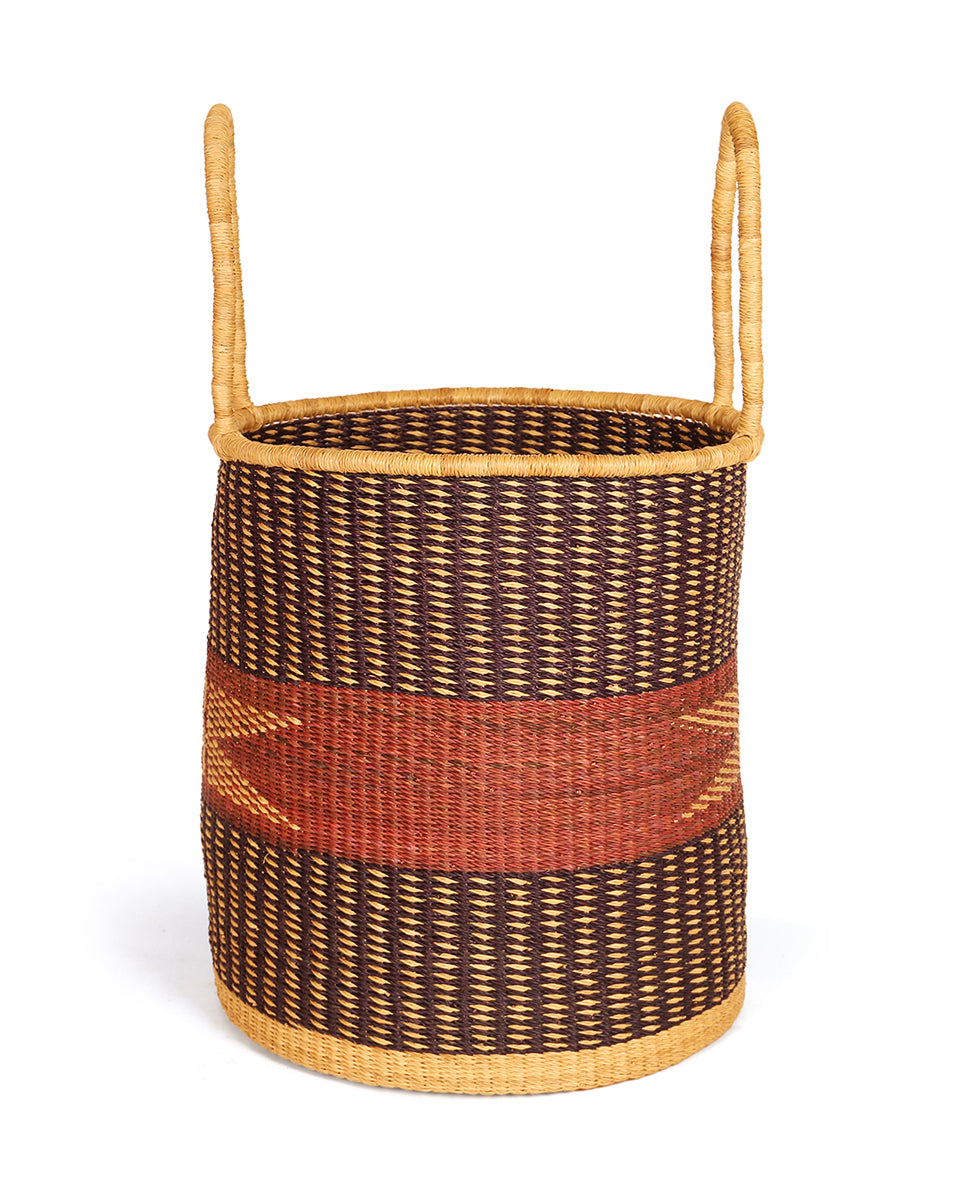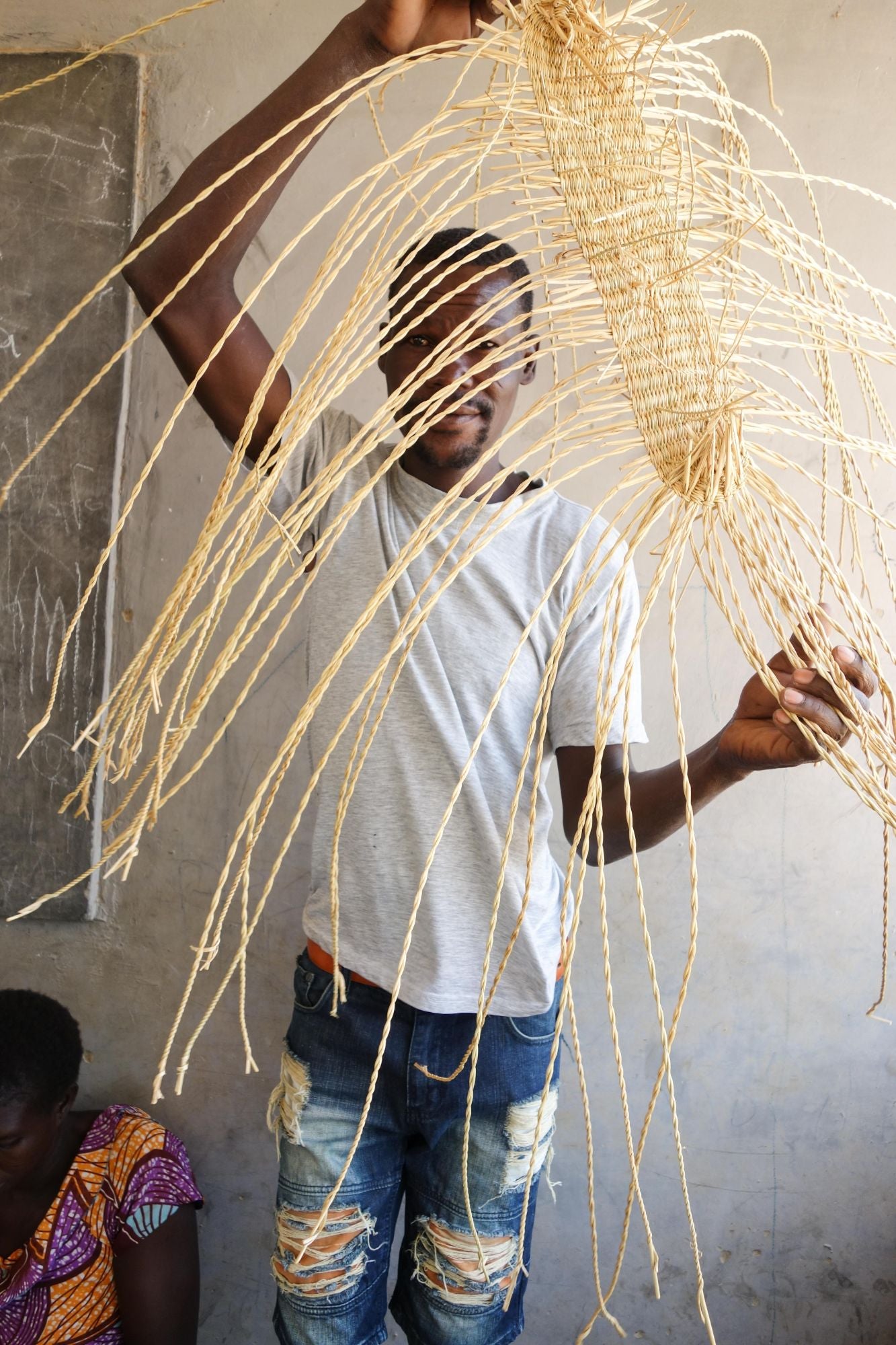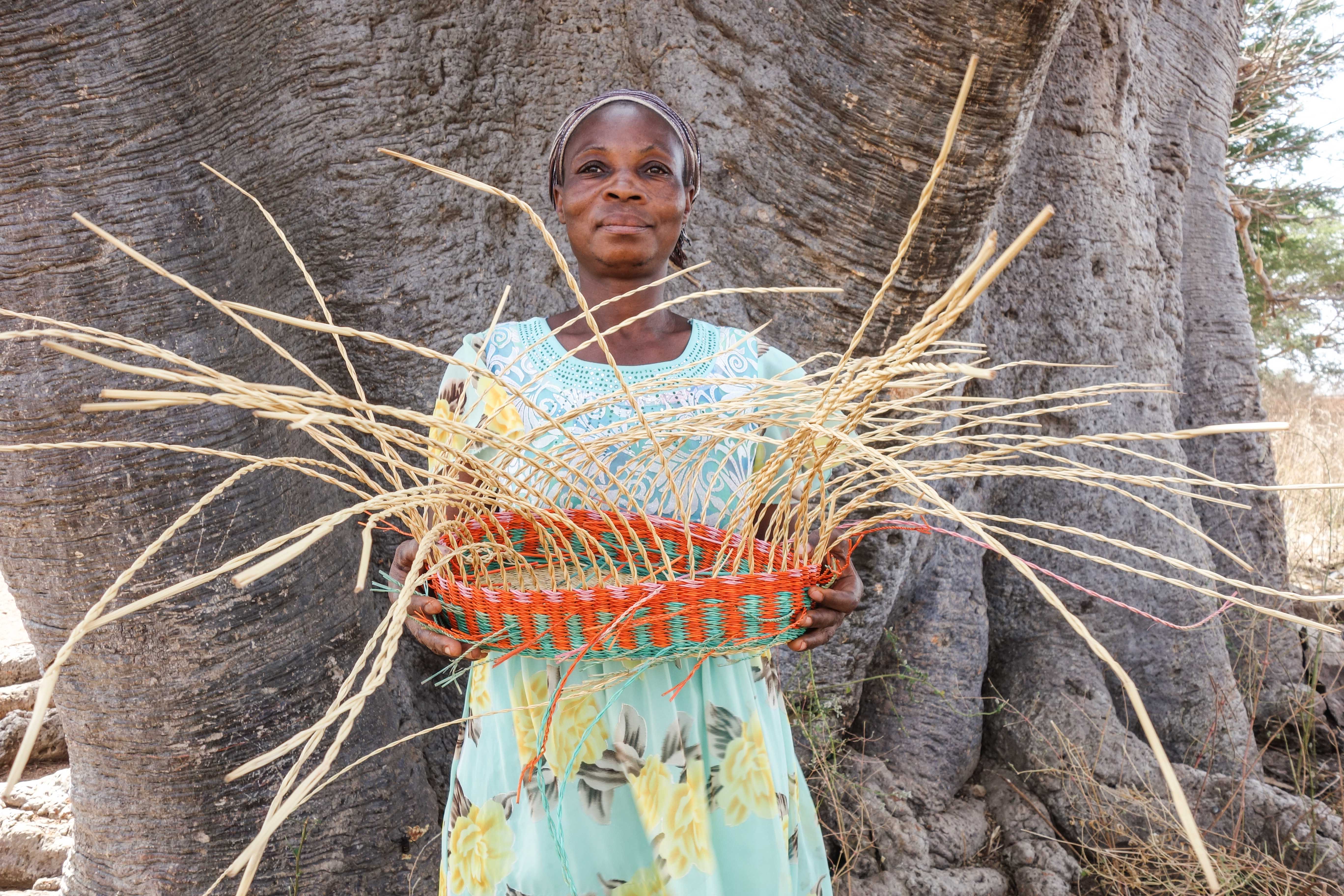Kenyan Basket Weavers | Pambo Palm
Doum Palm Basket Weavers - North-West Kenya
Ngurunit lies at the foot of the Ndoto Mountains, close to the arid Korante Plain and the Kaisut Desert. The residents of this village herd camels, cattle, sheep and goats, and they typically wear khangas (colourful wrap dresses) though European fashions are emerging here too. Drought is ravaging the area at present, and livestock are dying. Food relief (a government scheme) is currently in action here, where livestock owners are incentivised to slaughter and feed from their own cattle by being paid cash for the value of that animal. This is done to save animals from starving and going to waste, and to feed the people without families losing out on their precious investment.
The weavers of these beaded baskets are semi-nomadic pastoralists known collectively as Ariaal: not fully Samburu nor fully Rendille but a rich mixture of the two tribal cultures. The Ariaal are known for their ability to innovate, borrowing and adapting styles from both traditions - in house building, in bead making and in handicrafts. Often, the two tribal languages are spoken interchangeably and peace has been maintained between the tribes for generations. These baskets are in many ways a visual representation of this tribal union.
Life has changed considerably for Aarial women in recent years. In this rural region of Kenya where milk is precious currency, women are now allowed to own milk-producing camels as well as milk itself. The Ngurunit women are emancipated further by the opportunities to earn additional income through basket weaving, processing meat and hides, beekeeping and making honey. These delicately beaded baskets are symbols of empowerment for tribal women, and income from weaving helps mothers buy food and pay for school fees and transportation.
